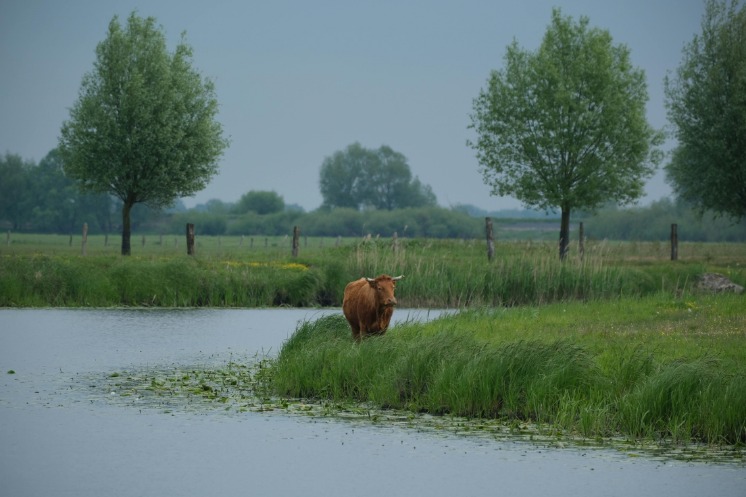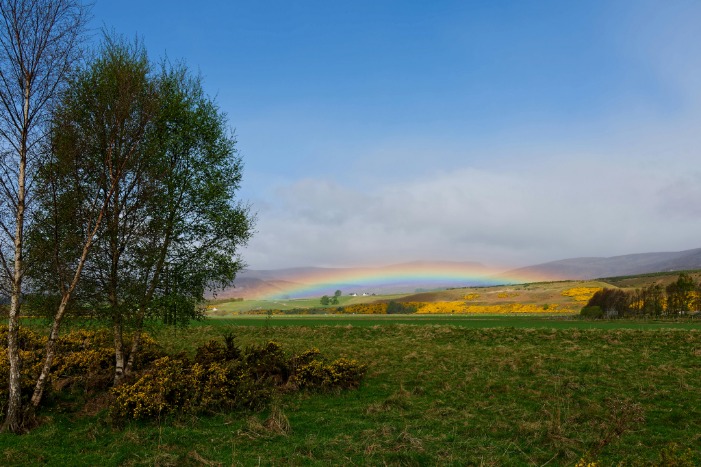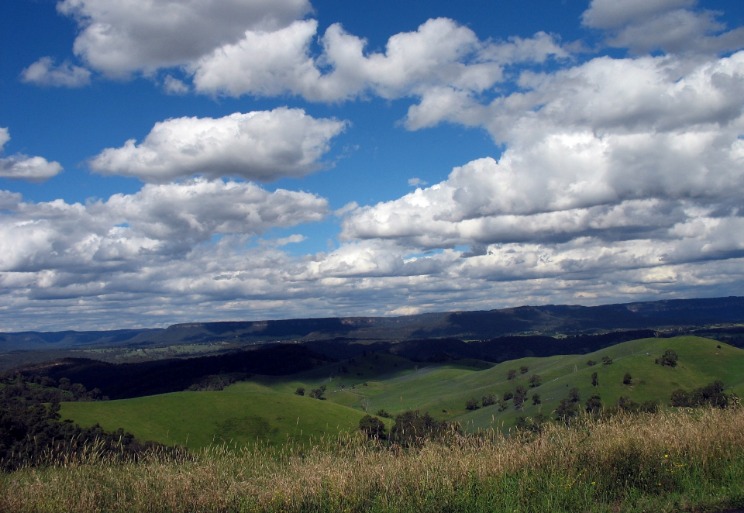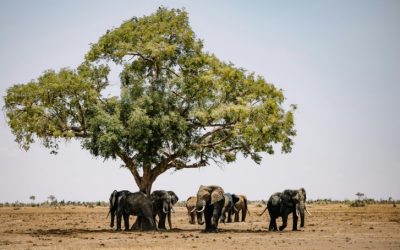Geography and Climate of Botswana
Botswana, a landlocked country located in Southern Africa, features a diverse geography and climate that significantly influence its environment and way of life. The country is characterized by vast deserts, such as the Kalahari Desert, and expansive savannahs that support a variety of wildlife and ecosystems. Its climate is predominantly semi-arid, with hot summers and cooler winters, creating a unique landscape that sustains both natural beauty and agricultural activities. Understanding Botswana’s geography and climate provides key insights into its rich biodiversity and the lifestyle of its people.
Location and Borders
Botswana is a landlocked country located in Southern Africa, characterized by its vast savannahs and semi-arid terrain. The country is bordered by Namibia to the west and north, Zambia to the north, Zimbabwe to the northeast, and South Africa to the south and southeast. Its central position within the region gives it a diverse landscape that supports a variety of wildlife and ecosystems.
Main Geographic Features
Botswana is a landlocked country located in Southern Africa, characterized by vast, open landscapes and diverse geographic features. The country is largely made up of flat plains and gently rolling terrain, with few significant mountain ranges. The Kalahari Desert covers a large portion of Botswana, influencing its climate and ecosystem. It is known for its semi-arid climate with hot summers and mild winters, experiencing low and unpredictable rainfall which contributes to the arid environment. The Okavango Delta, one of the world’s largest inland deltas, is a prominent feature in the northwest, providing a vital habitat for numerous species of wildlife. The Tropic of Capricorn passes through the country, further defining its geographic and climatic characteristics. Overall, Botswana’s geography is marked by its expansive deserts, floodplains, and rich biodiversity.
Climate and Weather Patterns
Botswana, a landlocked country in Southern Africa, features a diverse geographic landscape that significantly influences its climate and weather patterns. The country’s terrain consists mainly of flat plains, the Kalahari Desert, and some savannah regions, contributing to its arid and semi-arid environment. The climate is predominantly dry, characterized by hot summers and mild winters, with minimal rainfall throughout most of the year. In the northern parts, there are sporadic rainfalls and occasional thunderstorms, especially during the summer months from November to March. The Kalahari Desert experiences extreme temperatures, with scorching days and cooler nights. Overall, Botswana’s climate is classified as semi-arid, which supports its sparse vegetation and arid ecosystems while creating distinct weather patterns influenced by seasonal changes and geographic features.
History and Political Structure
Botswana, a landlocked country in Southern Africa, boasts a rich history and a stable political structure that have contributed to its development. From its ancient communities to its independence in 1966, Botswana has cultivated a unique cultural heritage. Its political system is characterized by a democratic framework, with regular elections and a focus on good governance, fostering peace and progress within the nation.
Historical Background
Botswana’s history and political structure are deeply rooted in its rich cultural heritage and colonial past. The country gained independence from British colonial rule on September 30, 1966, marking a significant milestone in its journey towards self-governance. Prior to independence, Botswana was known as the Protectorate of Bechuanaland, a strategic territory that served as a buffer zone during colonial times. The peaceful transition to independence was facilitated by the leadership of the Botswana Democratic Party and the visionary leadership of Seretse Khama, who became the first president. The nation’s political system is a democratic republic with a multi-party system, characterized by regular elections, a strong constitution, and an emphasis on stability and development. Botswana’s political structure includes an executive branch headed by the president, a legislative body comprising the National Assembly, and an independent judiciary. This stable governance framework has contributed to Botswana’s reputation as one of Africa’s most stable and progressive nations. Historically, the country has been recognized for its sound management of resources, particularly diamonds, which have played a pivotal role in its economic growth and development. Overall, Botswana’s historical background and political framework reflect a commitment to democracy, social progress, and national unity.
Government and Political System
Botswana, a landlocked country in Southern Africa, has a rich history marked by its early settlements, colonial encounters, and eventual independence. It was formerly the British Protectorate of Bechuanaland, gaining independence in 1966. The nation has since developed a stable political environment, characterized by democratic governance and respect for human rights. Botswana’s political system is a parliamentary republic, where the President serves as both head of state and government. The Parliament consists of two houses: the National Assembly and the Senate, which work together to pass legislation and oversee the executive branch. The Botswana Democratic Party (BDP) has been the dominant political force since independence, but the country maintains a multi-party system that encourages political participation and democratic processes. Overall, Botswana’s political structure promotes stability, transparency, and sustainable development, making it a model for democratic governance in the region.
Major Historical Events
Botswana, a landlocked country in Southern Africa, has a rich history and a stable political structure that has contributed to its development. Originally inhabited by the San people, Botswana later became a British protectorate known as Bechuanaland in 1885 to protect it from Boer and Boer-aligned forces. It gained independence in 1966 and established a democratic government, which has maintained stability and economic growth over the years.
Major Historical Events
- 1885 – Bechuanaland becomes a British protectorate to safeguard against neighboring influences.
- 1966 – Botswana gains independence from Britain on September 30, with Seretse Khama as its first president.
- 1966 – Discovery of minerals and diamonds begins, leading to economic development.
- 1980s – Botswana faces challenges of droughts and HIV/AIDS epidemic, prompting national response strategies.
- 1999 – Botswana adopts a new constitution promoting multi-party democracy and human rights.
Economy of Botswana
The economy of Botswana is known for its stability and steady growth, largely driven by the country’s rich mineral resources, especially diamonds. As one of Africa’s most economically developed nations, Botswana has successfully diversified its economy beyond mining into sectors such as tourism, agriculture, and manufacturing. Sound governance and prudent management of resources have contributed to improving living standards and reducing poverty in the country.
Major Industries and Sectors
Botswana has a diverse economy primarily driven by its rich natural resources and robust industries. The country is renowned for its diamond mining industry, which is a major contributor to its national income and exports. In addition to diamonds, Botswana has developed sectors such as tourism, especially eco-tourism centered around wildlife and national parks, which significantly boosts its economy. Agriculture also plays a vital role, with cattle farming being a key activity, alongside crops like sorghum and maize. The manufacturing sector is gradually growing, focusing on processing minerals and agricultural products. Furthermore, Botswana has been investing in financial services, real estate, and telecommunications to diversify its economic base and promote sustainable growth.
Natural Resources and Mining
Botswana’s economy is considered one of the most stable and well-managed in Africa, largely due to its rich natural resources and well-developed mining sector. The country benefits significantly from its mineral wealth, especially diamonds, which account for the majority of its export earnings and government revenue. The government has effectively implemented policies to diversify the economy, but natural resources continue to play a crucial role in economic stability and growth.
Natural resources in Botswana are abundant, with diamond, copper, nickel, and coal being among the most important. The country’s diamonds are renowned for their quality and size, making Botswana a leading global producer. Aside from minerals, Botswana also has significant wildlife and tourism resources, which contribute to the economy.
The mining industry is a cornerstone of Botswana’s economy. The Diamond Industry is dominated by Debswana, a joint venture between De Beers and the Botswana government, which ensures that more benefits from diamond mining stay within the country. The sector provides employment opportunities and stimulates related industries, including infrastructure, transportation, and services. Efforts to expand mining activities and explore other mineral resources are ongoing, aiming to reduce dependency on diamonds and promote sustainable economic development.
Tourism and Wildlife Conservation
Botswana is a landlocked country in Southern Africa renowned for its stable economy, vibrant tourism industry, and successful wildlife conservation efforts. Its economic growth has been driven largely by diamond mining, which accounts for a significant portion of its GDP, government revenue, and exports. The country has also diversified into sectors such as tourism, which plays a vital role in its development strategy.
The tourism sector in Botswana is celebrated for its ecotourism, attracting visitors eager to experience its pristine landscapes and abundant wildlife. Popular destinations include the Okavango Delta, Chobe National Park, and Moremi Game Reserve. These areas provide opportunities for luxury safaris, bird watching, and adventure activities, thereby supporting local communities and promoting sustainable tourism practices.
Wildlife conservation is a cornerstone of Botswana’s national identity and ecological health. The government has implemented strict policies to protect endangered species such as elephants, rhinoceroses, and lions. Community-based conservancies empower local residents to participate in wildlife management and benefit economically from conservation efforts, ensuring a balance between human development and ecological preservation.
- Economy largely driven by diamond mining, agriculture, and tourism
- Growing tourism industry focused on ecotourism and safaris
- Dedicated wildlife conservation initiatives to protect diverse species
- Community involvement plays a key role in conservation success
- Government policies promote sustainable development and environmental preservation
Culture and Society

Culture and society in Botswana are rich and diverse, reflecting a blend of traditional customs and modern influences. The country’s vibrant communities celebrate their heritage through music, dance, and storytelling, fostering a strong sense of identity. As Botswana continues to develop, its social fabric remains deeply rooted in the values of respect, community, and shared traditions, making it a unique and fascinating nation to explore.

Languages and Ethnic Groups
Botswana is a country rich in cultural diversity and societal traditions that have been preserved over centuries. Its society is characterized by a strong sense of community, respect for elders, and adherence to customary practices that reflect its Indigenous heritage. The nation’s social fabric is woven with various ethnic groups, each contributing unique customs, traditions, and beliefs.
Languages play a vital role in Botswana’s cultural identity. The official language is English, used in government and education, while Setswana (Tswana) is the national language spoken by the majority of the population. Other languages spoken include Kalanga, Sekgalagadi, and Shona, which highlight the multicultural mosaic of the country.
Ethnic groups in Botswana are predominantly Tswana people, who form the largest demographic. In addition, there are smaller communities of Kalanga, Basarwa (San people), and other minority groups, each with their own distinct languages and cultural practices. These diverse groups coexist peacefully, fostering a society that values unity in diversity and cultural preservation.
Traditional Customs and Practices
Botswana boasts a rich cultural heritage deeply rooted in the traditions and customs of its diverse groups, primarily the Tswana people. These traditional practices play a vital role in shaping the social fabric of the nation and are actively preserved through ceremonies, music, dance, and oral storytelling passed down through generations. Community gatherings and celebrations, such as sekgala (traditional ceremonies) and rites of passage, emphasize the importance of unity, respect, and social hierarchy.
Discussions around traditional dress, like the attire worn during special occasions, highlight the pride in cultural identity. Agriculture remains central to many societal customs, with practices and rituals associated with farming seasons and ancestral reverence. Despite modern influences, Botswana continues to uphold its customs, balancing modernization with respect for its cultural roots, fostering a strong sense of community and national identity among its people.
Festivals and Cultural Events
Botswana is a country rich in culture and tradition, reflecting a vibrant society that values community and heritage. The diverse ethnic groups, including the Setswana-speaking people, have preserved their customs through various cultural practices and social norms. Festivals and cultural events play a vital role in showcasing Botswana’s unique identity and fostering unity among its people.
One of the most prominent festivals is the Bodithlhabolla, which celebrates traditional music, dance, and crafts. Visitors and locals alike gather to enjoy performances that highlight the country’s artistic talents and storytelling traditions. Additionally, the Maun Arts Festival and the Pink October awareness campaigns are important cultural events that promote local talent and social causes.
Traditional ceremonies such as the rainmaking rituals and initiation ceremonies serve as important social gatherings that reinforce cultural values and community bonds. These events often feature colorful attire, traditional music, and lively dances that have been passed down through generations. Overall, Botswana’s festivals and cultural events are integral to maintaining its cultural heritage and promoting a sense of pride among its citizens.
Natural Resources and Environment
Botswana is a country renowned for its rich natural resources and diverse environment. It boasts vast mineral deposits, including diamonds, which play a crucial role in its economy. The nation also features unique ecosystems such as the Kalahari Desert and the Okavango Delta, supporting a wide range of plant and animal life. Protecting these natural resources and maintaining environmental sustainability are vital for Botswana’s ongoing development and ecological balance.
Fauna and Flora
Botswana is a country renowned for its rich natural resources and diverse ecosystems, which play a vital role in its environmental health and economic development. The country boasts vast mineral deposits, including diamonds, which are a significant contributor to its economy, while also emphasizing sustainable management of its natural wealth. Botswana’s flora and fauna are remarkable, with the African savannah supporting a wide variety of wildlife such as elephants, lions, giraffes, and cheetahs, many of which inhabit renowned national parks like Chobe and Moremi Game Reserves.
The flora in Botswana includes acacia trees, baobabs, and mopane bushes, which are well-adapted to the semi-arid climate. The country’s environment faces challenges such as desertification, poaching, and climate change, which threaten its biodiversity. Efforts are underway to protect wildlife and preserve natural habitats through conservation programs and community-led initiatives. Promoting eco-tourism has also become an important sustainable strategy to balance development with environmental preservation.
Overall, Botswana’s natural resources and diverse flora and fauna are vital assets that require ongoing conservation efforts to ensure that future generations can enjoy its ecological wealth while supporting sustainable growth and environmental stability.
Protected Areas and National Parks
Botswana is renowned for its rich natural resources and diverse environment, making it a vital part of its national identity and economy. The country boasts extensive mineral deposits, particularly diamonds, which are a major contributor to its revenue and global trade. Moreover, Botswana’s natural environment includes vast savannahs, wetlands, and a variety of flora and fauna that support a thriving ecosystem.
To preserve its unique biodiversity, Botswana has established numerous protected areas and national parks. These areas serve to conserve wildlife and natural habitats while also promoting eco-tourism, which is an important economic activity. Notable parks include the Okavango Delta, a UNESCO World Heritage Site and one of the world’s largest inland deltas, and Chobe National Park, famous for its large elephant populations.
These protected spaces play a crucial role in the country’s environmental conservation efforts, providing refuge for endangered species and maintaining ecological balance. Botswana’s commitment to safeguarding its natural resources reflects its understanding of the importance of sustainable development and environmental stewardship for future generations.
Environmental Challenges and Conservation Efforts
Botswana is renowned for its rich natural resources and diverse environment, which are central to the country’s economy and ecological health. The nation is home to vast mineral resources such as diamonds, which significantly contribute to its development. However, Botswana faces numerous environmental challenges, including habitat loss, water scarcity, and the impacts of climate change that threaten its delicate ecosystems.
To address these issues, Botswana has implemented various conservation efforts aimed at preserving its natural heritage. These initiatives include protecting wildlife habitats, promoting sustainable tourism, and enforcing laws against illegal poaching. Additionally, the country has established numerous national parks and protected areas to conserve its unique flora and fauna.
- Protected areas like Chobe National Park and Tsodilo Hills safeguard diverse wildlife and cultural heritage.
- Community-based natural resource management programs empower local communities to participate in conservation activities.
- Efforts are underway to reduce water consumption and develop alternative water sources to combat scarcity.
- Promotion of eco-tourism serves both as an economic driver and a tool for environmental preservation.
- Legislation to regulate mining and ensure sustainable resource extraction is actively enforced.
Education and Healthcare
Education and healthcare are vital sectors that play a crucial role in the development and well-being of Botswana. The country has made significant efforts to improve access to quality education and healthcare services for its citizens. These sectors are essential for fostering a healthy, educated population capable of contributing to Botswana’s growth and prosperity.
Educational System
Botswana’s education and healthcare systems are vital components of the country’s development, aiming to improve the quality of life for its citizens. The educational system in Botswana is structured to provide accessible and quality education from primary to tertiary levels, emphasizing literacy, skills development, and lifelong learning. Significant investments have been made to expand access, enhance curriculum standards, and promote inclusive education for all populations.
Healthcare in Botswana focuses on providing comprehensive services to its population, including rural and underserved areas. The government has established numerous clinics and hospitals, aiming to improve maternal and child health, combat infectious diseases such as HIV/AIDS, and enhance overall health outcomes. Efforts continue to strengthen healthcare infrastructure, workforce capacity, and health education to ensure better service delivery and healthier communities across the country.
Healthcare Infrastructure
Education and healthcare are vital sectors in Botswana, playing a crucial role in the nation’s development and the well-being of its citizens. Over the years, Botswana has made significant investments to improve these sectors, aiming to provide quality services to all its residents.
In terms of healthcare infrastructure, Botswana has developed a network of clinics, hospitals, and health posts across the country, including rural and underserved areas. The government continues to prioritize expanding healthcare access and upgrading facilities to better serve the population.
- Primary healthcare centers are widespread, especially in rural regions, ensuring basic medical services are accessible.
- Major hospitals in Gaborone, Francistown, and other urban centers offer specialized medical care and emergency services.
- The country has implemented national health programs targeting HIV/AIDS, malaria, and maternal health to reduce disease burden.
- Investments have been made to enhance medical equipment, training of healthcare professionals, and supply chain management.
- Efforts are ongoing to incorporate technology and digital solutions into healthcare systems to improve efficiency and patient outcomes.
Public Health Initiatives
Botswana has made significant efforts to improve education and healthcare systems to promote the well-being of its citizens. The country has invested in expanding access to quality education, ensuring that children and young adults receive proper learning opportunities to foster economic growth and development. Public health initiatives in Botswana focus on combating infectious diseases such as HIV/AIDS, tuberculosis, and malaria through widespread awareness campaigns, treatment programs, and vaccination efforts. These initiatives have contributed to improved life expectancy and overall health outcomes. Continued commitment to enhancing education and healthcare services remains essential for Botswana’s sustainable development and the betterment of its population.
International Relations and Development
International Relations and Development is a vital field that explores how countries interact with each other and work towards economic growth, political stability, and social progress. Botswana, a landlocked country in Southern Africa, showcases a unique example of development through its strategic diplomacy, resource management, and efforts to enhance regional cooperation. Understanding Botswana’s approach within the broader context of international relations provides valuable insights into the nation’s path toward sustainable development and global integration.
Diplomatic Relations
Botswana is a landlocked country in Southern Africa renowned for its stable political environment and progressive development policies. In terms of international relations, Botswana maintains a diplomatic approach grounded in peaceful coexistence, regional cooperation, and adherence to international agreements. The country actively participates in regional organizations such as the Southern African Development Community and the African Union, aiming to foster economic integration and political stability across the continent. Diplomatic relations with other nations emphasize mutual respect, trade partnerships, and support for development initiatives, reflecting Botswana’s commitment to sustainable growth and good governance. These diplomatic efforts have helped Botswana establish a reputation as a reliable partner in regional and international affairs.
International Aid and Cooperation
Botswana is a prime example of a country that has benefited from international aid and cooperation to promote its development and stability. Over the past decades, international relations have played a vital role in supporting Botswana’s efforts to build a sustainable economy, improve healthcare, and expand educational opportunities for its citizens. The country’s strategic partnerships with global organizations and neighboring nations have facilitated investments in infrastructure and social services, fostering a conducive environment for growth.
International aid has been instrumental in addressing challenges such as poverty reduction, HIV/AIDS prevention, and infrastructural development in Botswana. Collaborative projects with international agencies have helped strengthen governance and promote good practices in public administration. Moreover, Botswana’s active engagement in regional organizations like the Southern African Development Community (SADC) underscores its commitment to collective development and regional stability.
Overall, Botswana’s proactive approach to international cooperation demonstrates its recognition of the importance of global partnerships in achieving sustainable development goals. The country’s experience highlights how effective international relations and aid can serve as catalysts for development, ultimately enhancing the well-being of its people and positioning Botswana as a resilient player on the regional and global stage.
Development Projects and Goals
Botswana is a remarkable example of successful development in the context of international relations and development projects. The country has prioritized stability, good governance, and sustainable economic growth, which have contributed to its relatively high levels of human development in the region. International partnerships and foreign aid have played a vital role in supporting Botswana’s development initiatives, especially in education, health, and infrastructure sectors.
The nation’s development goals are aligned with global frameworks such as the United Nations Sustainable Development Goals (SDGs). Botswana aims to eradicate poverty, improve access to quality healthcare and education, and promote economic diversification. Key projects include the expansion of healthcare services, investment in tourism and mineral resources, and efforts to enhance technological innovation to boost economic resilience.
International relations have helped Botswana reinforce its development trajectory through regional cooperation within the Southern African Development Community (SADC) and the African Union (AU). These collaborations facilitate knowledge sharing, regional integration, and collective strategies to address development challenges such as climate change, inequality, and unemployment. Overall, Botswana’s strategic approach to development and international engagement continues to advance its social and economic progress.





0 Comments